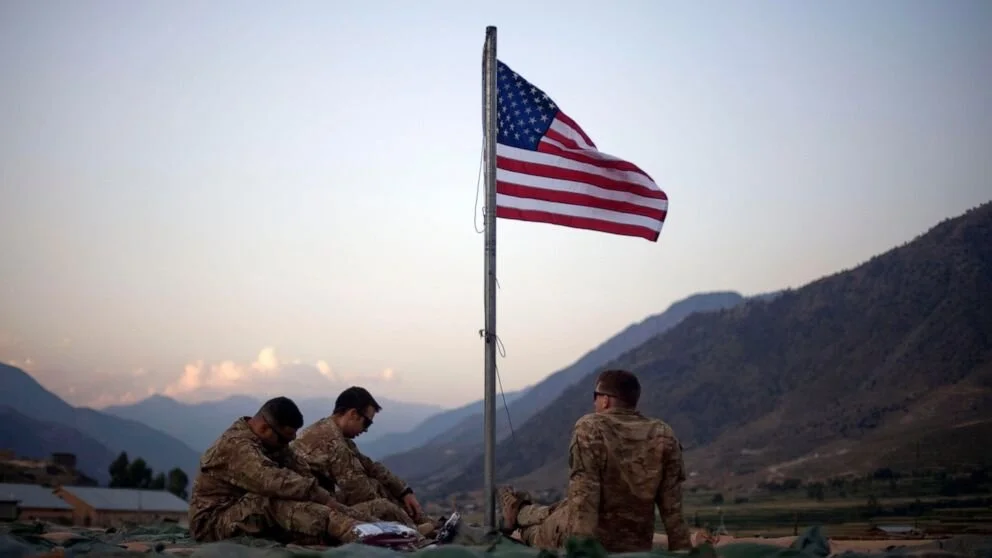Leaving Afghanistan
My association with Afghanistan started back in 1978 and parallels formal U.S. involvement with that country from then until now. It is hard for me to untangle my personal experience and emotions from any attempt at objective evaluation of the President Biden’s decision to remove all remaining U.S. forces from Afghanistan. Nevertheless, I do agree with the President’s decision to end our direct military presence there.
I am not a military strategist, but it is clear that no matter the U.S. troop levels over the last 20 years (100,000 under Obama and 2500 now) we never achieved the objective of tamping down the Taliban insurgency, building a self-sustaining Afghan military or stabilizing the Afghan government. But it was also never consistently clear what exactly the military objectives were as they kept changing (or were always ambiguous) under the four U.S. administrations that presided over our military involvement in Afghanistan, e.g., overthrow the Taliban?, nation-building?, win hearts and minds?, establish democracy and human rights?, conduct counter insurgency?, stabilization?, etc.
Unintentionally, the prolonged U.S. military presence and operations there probably also stoked the ongoing chaos. The continuous conflict would have been there anyway, U.S. military presence or not, since the Afghans have been at war with each other since 1978 and it does not take much for personal, family, village, religious, ethnic, tribal, political conflict to erupt between Afghans. I think beyond the strict military objective of initially overthrowing the Taliban, dismantling the Al Qaeda presence there, and tracking down Osama Bin Laden, we asked and expected too much of our military.
I think the President nailed it when he said: “Only the Afghans have the right and responsibility to lead their country, and that more and endless American military force could not create or sustain a durable Afghan government.” “We cannot continue the cycle of extending or expanding our military presence in Afghanistan, hoping to create ideal conditions for the withdrawal, and expecting a different result.”
It’s interesting to note that in his announcement that while the President primarily addressed our direct military involvement in Afghanistan, he did go on to say that: “While we will not stay involved in Afghanistan militarily, our diplomatic and humanitarian work will continue. We’ll continue to support the government of Afghanistan. We will keep providing assistance to the Afghan National Defenses and Security Forces.”
Most Americans have no idea about our civilian aid and development investment in Afghanistan over the last 20 years. As with most federal government spending, it is hard to pin down the figures, but the last I could verify were about $825 billion in military spending and security assistance and another $143 billion in civilian aid and development, nearly a trillion dollars.
Just as we are rightly ending our military involvement we should be just as careful about continuing any overly ambitious civilian aid programs in Afghanistan based on the poor results achieved over the last 20 years.
Over my ten years there between 2003-2018 I worked on, designed, managed, and implemented civilian aid projects in 12 Afghan government ministries including the Office of the President all intended to establish effective “governance.” Honestly, none of those projects ever achieved the unrealistic goals that were set for them, yet we kept funding and doing them over and over. I believe the whole “nation-building” exercise over the last 20 years in Afghanistan has mostly failed (as well-intentioned as it was) for a variety of reasons.
— We (the international community supporting the re-construction) were all woefully ignorant of Afghan history, culture, and values in our rush to nation-building with far too many naïve, unrealistic, and over-funded programs.
— We never had trustworthy, reliable partners in the Afghan government in all of this. The Afghan political elite with whom we partnered to re-build their government and country were corrupt and at heart never shared our values and goals.
— You can never change a society much less a culture from “the outside” by imposing alien concepts and values. Most of the programs we tried to implement were driven by western, secular, globalized cultural values which were alien to Afghanistan and mostly antithetical to the Afghan interpretation of Islam.
Our leaving is difficult but the right decision.
